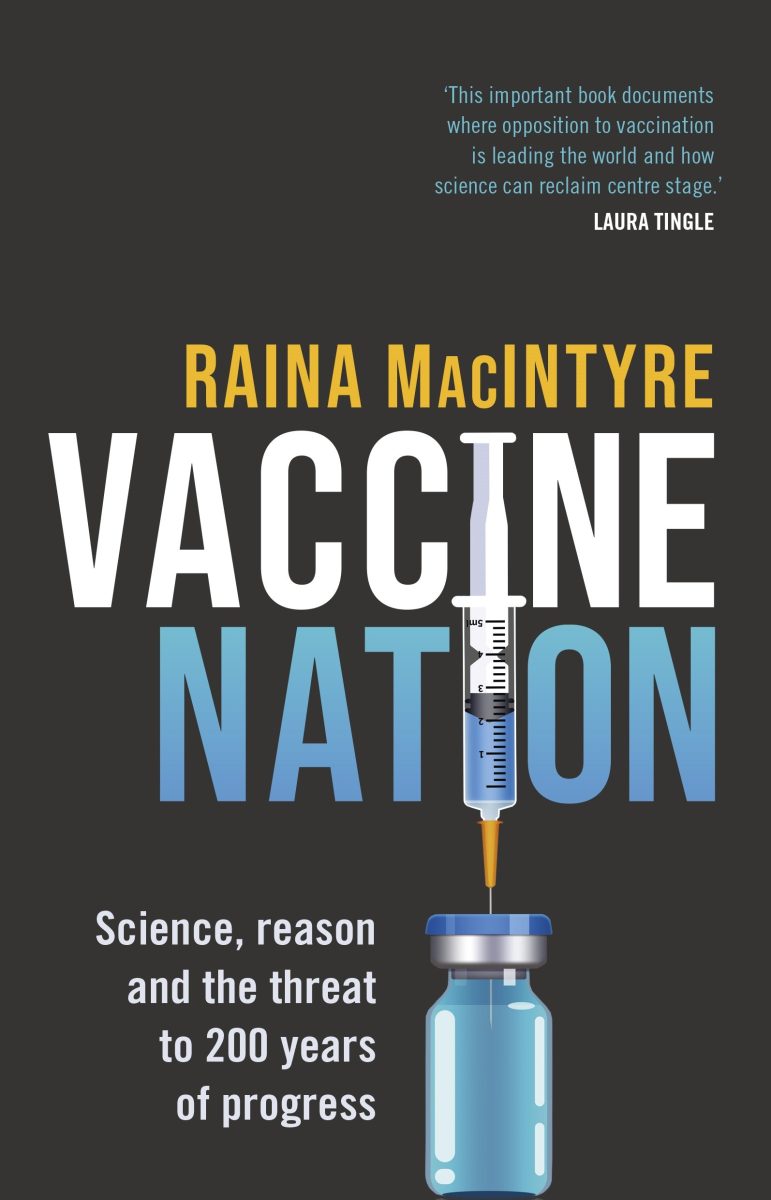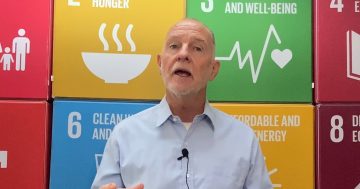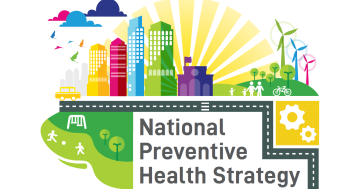
World-leading epidemiologist Raina MacIntyre examines the history of vaccines, how they work, their safety, public policy, new technologies and the effects of the COVID pandemic on the anti-vaccination movement in Vaccine Nation: Science, reason and the threat to 200 years of progress. Photo: Supplied.
Vaccines are generally regarded as one of humanity’s greatest public health achievements, a point expounded in the new book Vaccine Nation: Science, reason and the threat to 200 years of progress. Yet in it, world-leading Australian epidemiologist Raina MacIntyre expresses concern about the medical profession being among those making misrepresentations of anti-vaccination attitudes.
It was the COVID-19 pandemic that set in motion this anti-vaccine reaction. Simultaneously, as vaccination rates are falling globally, miraculous new developments in vaccines mean new tools are at our disposal to fight cancer and other chronic diseases. The disappearance of many diseases has also seen an increased focus on the side effects of vaccines.
“To me, what has been most frightening is the mainstreaming of anti-vaccination sentiment among the medical profession where misinformation and misconceptions about COVID vaccines are common,” Professor MacIntyre writes. She then proceeds to give numerous examples, saying it’s vital to first understand the public health benefit of vaccines and how they work.
The Professor of Global Biosecurity in the Kirby Institute at University of NSW and a National Health and Medical Research Council principal research fellow, she comprehensively examines the history of vaccines, how they work, their safety, public policy, cutting-edge new technologies such as mRNA, the effects of the COVID pandemic on the anti-vaccination movement and the miraculous new developments in vaccines to fight cancer and other noncommunicable diseases. She argues that science must reclaim the stage or we will lose centuries of gains that vaccines have brought to the world.
While acquiring knowledge, Vaccine Nation also provides a stimulating, compelling journey through the past, present and future of vaccines, and places the spotlight on how crucial it is to protect yourself, your family and the community from serious diseases.
“The miracle of vaccines eradicated smallpox from the planet, then it fought off other deadly infections like polio, tetanus, diphtheria, measles and meningitis,” Professor MacIntyre records. “Yet vaccine-preventable diseases, including COVID, are still with us.
“… New viruses will emerge and continue to be a threat to our health. New vaccines will be developed to fight not only infectious diseases but cancer and other chronic diseases as well. In the future, we may view cancer as a distant, forgotten disease of the past …
“If existing vaccination programs are discontinued, epidemics will occur and cause many deaths. This has been proven over and over again in history.”
The award-winning international leader in emerging infections goes into details about what triggered her lifelong interest in adult vaccination, which led to her research on the vaccination of older adults and immunosuppressed people, spanning vaccines for influenza, pneumococcus, herpes zoster (shingles) and COVID-19.
“It also triggered my interest in vaccine equity, as I quickly realised that there was a gap in vaccination rates in fully funded vaccines for children compared to adults. Our childhood vaccination rates are extremely high by global standards, over 95 per cent for several vaccines and over 90 per cent for most. In contrast, vaccination rates for influenza in adults have hovered around 70 per cent for a long time, plummeting to 60 per cent after the COVID-19 pandemic, and pneumococcal vaccines are even lower.
“An enormous amount of research has been around the world on why rates of adult vaccination are consistently lower than paediatric vaccines. They all showed there is lower awareness of vaccination for adults in the community, and less belief in vaccination for older people among doctors.
“You see, vaccines have enjoyed a privileged position in public health compared to other public health interventions. Childhood vaccines are often over 90 per cent effective in preventing disease. This contrasts with accepted public health interventions for other chronic conditions, which usually have a much lower effectiveness.”
Being meticulous in her scrutiny, Professor MacIntyre does not want us to slide backwards and lose the gains that vaccines have gifted us over the past century.
“We need to return to solid public health principles that ensure vaccines are widely accessible and not restricted for widespread, serious diseases like COVID-19. A new pandemic will occur – the question is when, not if. Lifesaving cancer vaccines will also shift the pendulum towards vaccines, and there is a real prospect of new vaccines for elusive infections like HIV, malaria and EBV, the virus that causes multiple sclerosis. The world may have forgotten iron lungs and half of all children dying of infectious diseases, but medical breakthroughs in vaccinology will continue. Despite the backward slide post-COVID, progress cannot be stopped.”
Vaccine Nation: Science, reason and the threat to 200 years of progress, by Raina MacIntyre, NewSouth Books, $34.99








